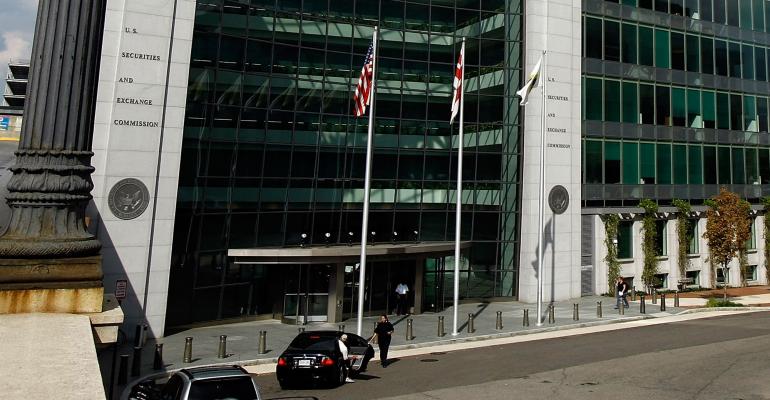Private Advisor Group, a registered investment advisor and LPL Financial affiliate, will pay $5.8 million to settle charges with the Securities and Exchange Commission that it invested clients’ funds in certain mutual fund share classes when more affordable options were available, while failing to disclose the conflict to clients.
The Morristown, N.J.–based RIA has about $34 billion in regulatory assets under management as of April, according to the SEC order filed on Thursday. The SEC argued PAG offered wrap program options, in which advisory clients could pay a single fee to cover investment advice, brokerage services and administrative support (most of PAG’s regulatory AUM was included in wrap accounts).
As a part of the agreement with its clearing firm, PAG would pay the transaction fees for wrap account trades, but starting around 2014, PAG began deducting those fees from its advisors’ compensation.
But the SEC argued PAG created a conflict of interest when it began avoiding these fees in wrap client trades by placing some clients’ funds into certain no-transaction fee mutual fund share classes offered by the clearing firm.
Share classes in mutual funds will often have similar aims but differ in their fee structure, with some charging 12b-1 fees to cover certain additional costs. It is usually (though not always) more profitable for an investor to have their funds in a share class without these fees, according to the commission.
In PAG’s case, its clearing firm offered NTF share classes, but these investments often had higher expense ratios because of included 12b-1 fees and, thus, were more costly for the firm’s wrap program accounts.
While the firm and its reps never received those fees, investing clients in the NTF share classes meant they could avoid transaction fees that would have been deducted from IARs’ compensation. This led PAG to select NTF shares for wrap program clients when more affordable share classes of the same funds were available, and the firm failed to alert clients to this fact, according to the commission.
Starting in early 2017, PAG outlawed IARs from purchasing share classes with 12b-1 fees in wrap accounts, and reps had until the end of that year to move existing wrap account assets from share classes with the fees to others without them. The changes mitigated but did not eliminate the conflicts, and they continued to go undisclosed, according to the commission.
In a statement, a spokeswoman for the firm said the firm was “pleased” to put the matter to rest, pointing to the 2017 policy requiring that the firm select the lowest available share class.
“This requirement is still an industry-leading policy,” she said. “Indeed, the SEC favorably recognized this remedial policy in the settlement while it asked us, among other things, to update our related disclosures.”
The firm also highlighted the commission’s findings that PAG never directly received 12b-1 fees and other compensation, and that they did not admit nor deny the charges upon settling.
In determining the settlement, the commission weighed the firm’s remedial actions in 2017, which occurred before the SEC’s investigation commenced. In addition to the monetary penalty, the firm agreed to a censure and cease and desist, and to establish a fair fund to get restitution to affected clients.
PAG expected that because of the policy changes in 2017, most of the settlement amount will be credited to clients to cover the time between 2014 and December 2016, and that due to the “historical nature” of the charges, less than 4% of current accounts would get more than $100.




